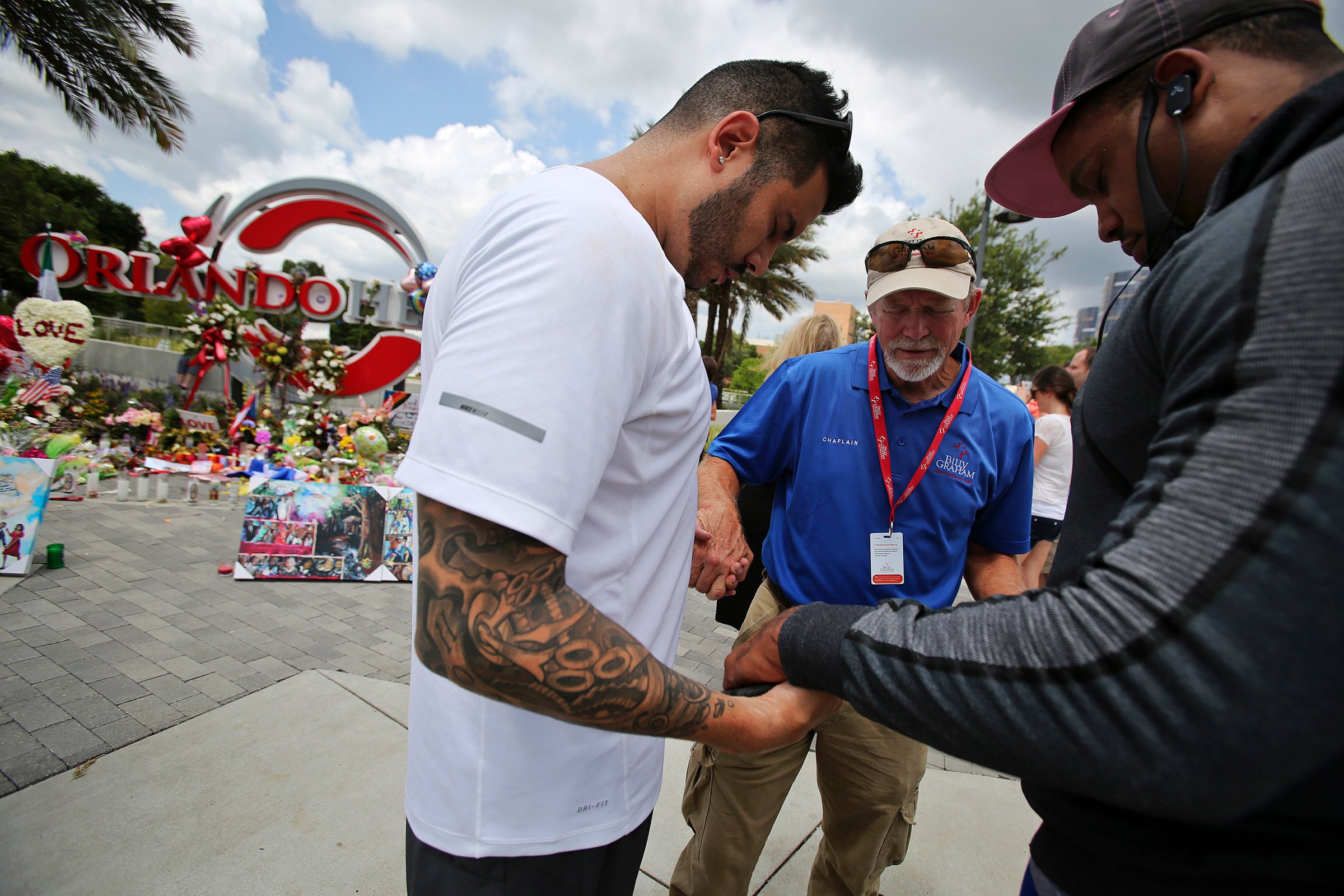
“Our thoughts and prayers are with you.” When a tragedy occurs, like the recent shooting in Orlando, people inevitably offer this phrase. But what can it mean to offer prayers in the wake of something horrible? If we believe that prayer is a way of changing the world, it is too late; the disaster has struck, and those affected are reeling in the aftermath. What good can prayers do them now?
One answer is that saying “my prayers are with you” is another way of saying: “I care about you, sympathize with your predicament, wish you comfort.” As a sentiment, this is unobjectionable, but as a palliative, it is pretty tame stuff. What can it mean to a person whose loved one has been killed that a news anchor or public official says “of course our prayers are with the victims and their families”? The intentions are admirable, but after the phrase is repeated enough, it begins to seem more rote than real.
Perhaps we could begin to think of prayer in another way, one suggested by the 17th-century rabbi, Leon Modena. He asked us to imagine standing on a shore and watching a man out on a boat grab a rope and pull his boat to shore. Now if you were confused about weights and motion, you might think that he was really pulling the shore to his boat. People have much the same confusion about spiritual weight and motion: in prayer, some believe that you are pulling God closer to you. But in fact the heartfelt prayer pulls you closer to God.
We offer prayers to elevate ourselves along with the one who has suffered. If our prayers are truly with them, we are committing ourselves to work toward a world in which such tragedies—whether mass shootings or diseases or natural disasters—can be mitigated or ended. A prayer changes the world through changing us. It moves us to action. Praying pulls us closer to God and therefore toward what might be—what should be.
Seen in this light, a prayer is no limp bouquet of empathy tossed across the country but a sturdy rope of solidarity thrown to the sufferer, one that acknowledges that we are in this together, and they are hurting because we—all of us—have not yet done enough to help.
In a free society when something terrible occurs, as Abraham Joshua Heschel taught, few are guilty, but all are responsible. A prayer offered with such consciousness says: “I am with you. I might have done more. Your pain is not separate from my deeds and my life. I pray that you will have comfort, and that I, along with others who know of your suffering, will work to make a world in which such pain is banished.” That is how our hopes of healing will come to pass.
More Must-Reads from TIME
- Donald Trump Is TIME's 2024 Person of the Year
- Why We Chose Trump as Person of the Year
- Is Intermittent Fasting Good or Bad for You?
- The 100 Must-Read Books of 2024
- The 20 Best Christmas TV Episodes
- Column: If Optimism Feels Ridiculous Now, Try Hope
- The Future of Climate Action Is Trade Policy
- Merle Bombardieri Is Helping People Make the Baby Decision
Contact us at letters@time.com